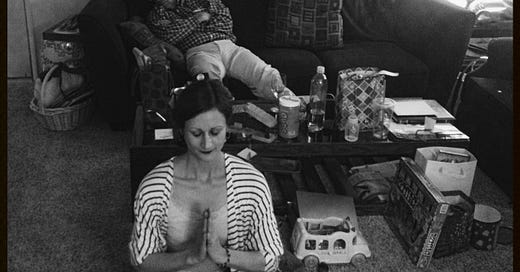How to not regress into your 17 year-old self over the holidays
You will anyway but here's a few tricks
This was originally written in December 2014. I’ve updated it in a few places but mostly left the spirit of the original piece in tact. To be read in the voice of a woman who said: “Take a picture of me pretend-meditating in front of Bill for my blog.”
A few days before Christmas last year, I sat in my therapists office, sipping in the lavender flavored air and her warm sage advice. I was in a good place. My job wasn't killing me too much, I hadn't had a hangover in what seemed an eternity, I was in yoga teacher training and continually becoming a more dedicated and regular practitioner, I knew what self love meant theoretically and sometimes practically, and my apartment was clean (a benchmark of adulthood, for me). I actually remember sitting there across from her feeling…together.
We were talking about my upcoming trip home for the holidays to my mother's house. I told her that while in …




